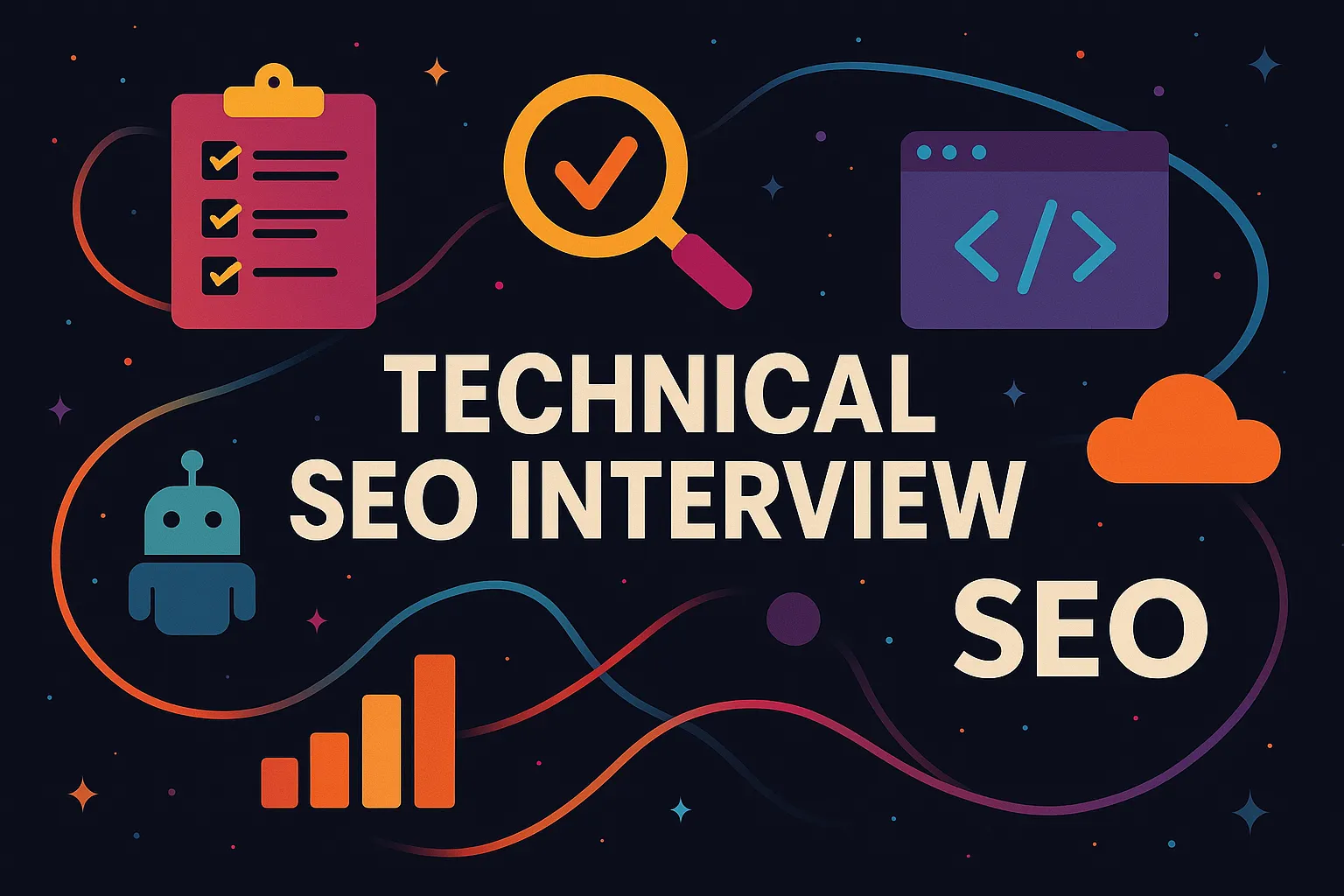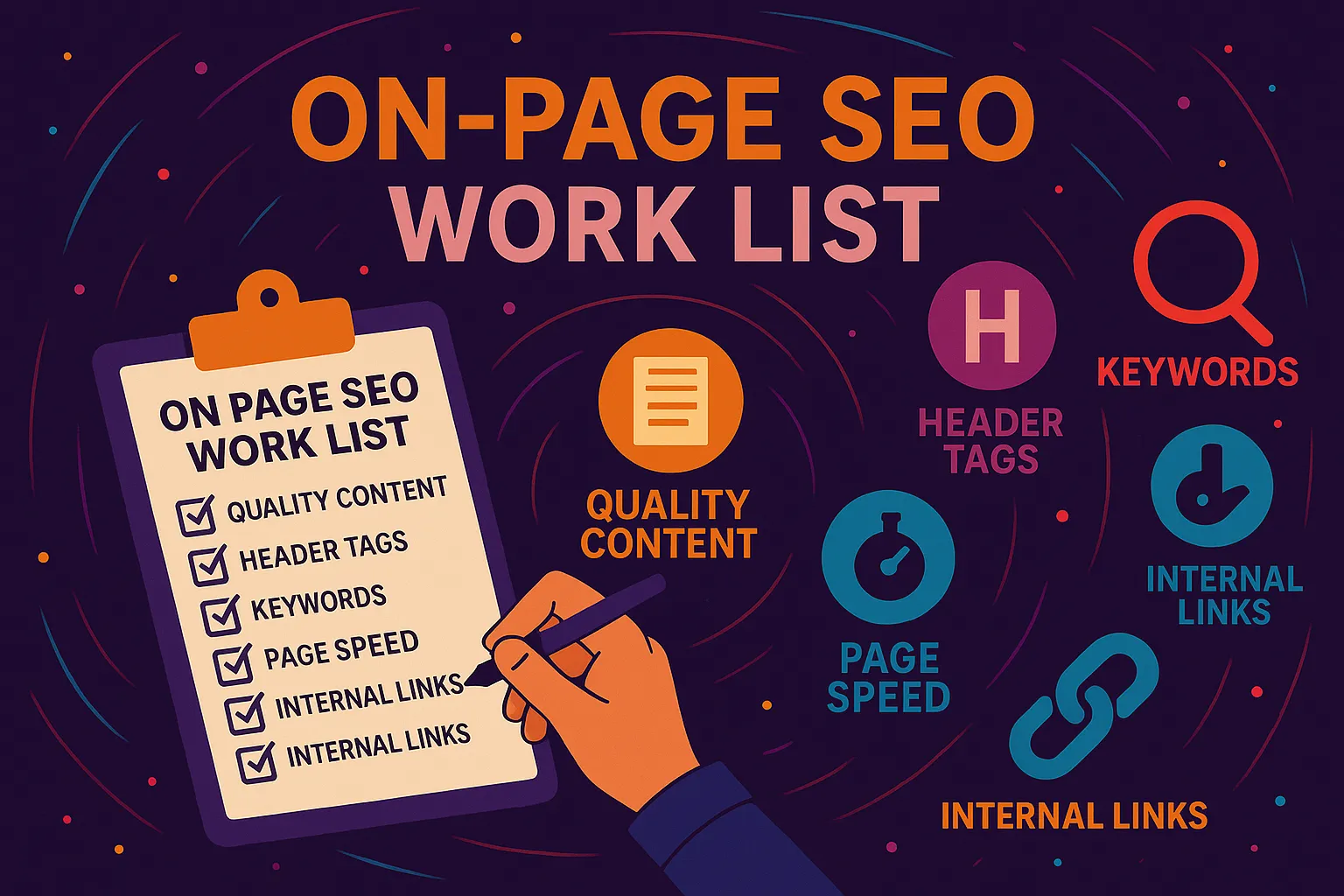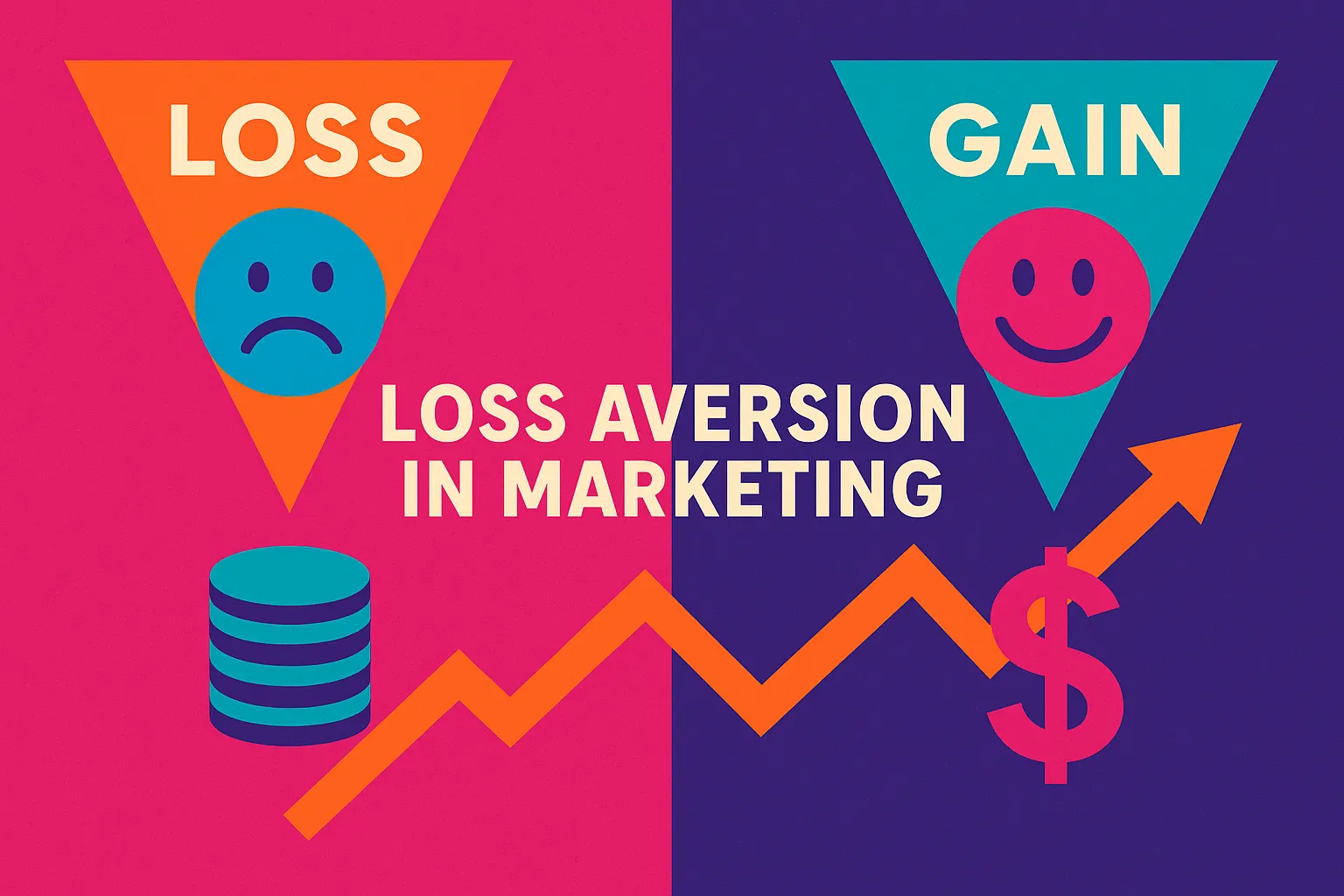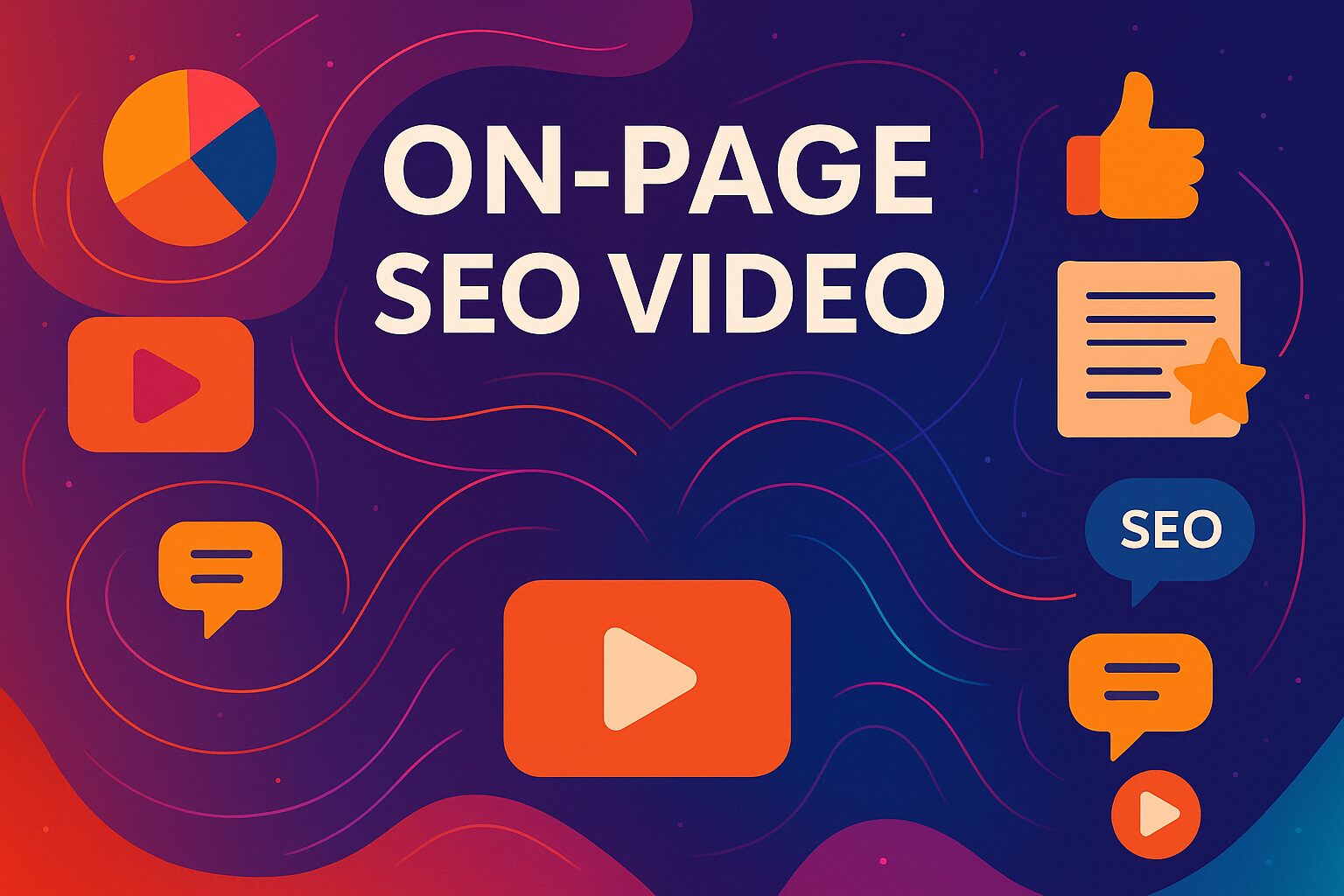What is a Technical SEO Interview?
A technical SEO interview isn’t just about naming a few tools or explaining what a 301 redirect does. It’s a deep dive into how you think, how you troubleshoot, and how well you understand search engine mechanics.
Unlike SEO interviews that may focus on content, outreach, or basic keyword research, this one is about your ability to optimize the foundation of a website for search performance—code, structure, crawlability, and performance. In my ten years leading Vibe Branding, I’ve hired, interviewed, and collaborated with dozens of SEOs, and the difference between a good candidate and a great one is their ability to turn complexity into clarity.
That’s what we’ll walk through here.
TL;DR
- Learn what a technical SEO interview really involves and how it’s different from general SEO roles
- Discover essential concepts, tools, and KPIs hiring managers expect you to know
- Explore real-world examples and techniques that I’ve used to stand out in high-level interviews
- Understand how to clearly explain SEO to non-technical stakeholders
- Get tips on showcasing your portfolio, soft skills, and avoiding common red flags
Understanding the Core of a Technical SEO Interview
Back when I interviewed my first technical SEO hire, I realized most people were prepared for marketing questions, not engineering problems. In this kind of interview, I don’t want to hear buzzwords—I want to hear logic, see processes, and feel confident.
To succeed, you must know how to assess a site’s structure, explain canonicalization, and analyze JavaScript rendering issues. You need to go beyond tools like Screaming Frog or Sitebulb and show you understand why a page might be blocked from indexing.
You should be able to speak about robots.txt and noindex directives as separate functions, and explain when to use each. The best candidates I’ve met are those who can detect crawl anomalies with GSC Coverage reports and explain how that affects page discovery.
One hire even spotted an issue with our faceted navigation causing duplicate content—we hadn’t even noticed it yet.

Key Concepts You Absolutely Must Understand
No one expects you to know everything, but there are a few non-negotiables. When we interview for a technical SEO role at Vibe Branding, we expect you to understand crawl budget optimization, Core Web Vitals, canonical tags, and structured data at a minimum.
You should be fluent in Google Search Console and able to explain the difference between field data (from CrUX) and lab data (from Lighthouse). It’s essential to know how indexing works, how JavaScript might block bots from crawling, and how to validate structured data for rich results.
You must be able to walk through how internal linking shapes crawl paths, and how to use schema to enhance snippets. You can’t bluff your way through these—it becomes obvious the moment we ask about index bloat or duplicate content mitigation.
Tools & Platforms You Need to Know Cold
When I’m on the other side of the interview table, I want to see that you know why you’re using a tool, not just how. For example, using Screaming Frog to simulate a crawl is great—but do you know how to adjust user agents or analyze rendered HTML?
We expect candidates to know:
- Google Search Console
- Google PageSpeed Insights / Lighthouse
- Screaming Frog SEO Spider
- Ahrefs or SEMrush for backlink profiling
- Schema Markup Validator
- GTmetrix or WebPageTest for page performance
Bonus points if you’ve used browser extensions like Detailed SEO or tools like JetOctopus. These are everyday weapons in our toolkit, and fluency here shows you’ve actually done the work, not just studied it.
The Questions You’re Likely to Be Asked
If I’m conducting a technical SEO interview, I’ll start light—asking how you’d block a page from indexing. Then I’ll push deeper.
“What if that same page is still showing in SERPs?” Your answer tells me how you approach edge cases. Expect questions like:
- “How do you check if a URL is indexed?”
- “How do you troubleshoot sudden traffic drops?”
- “How would you improve site speed on a budget?”
- “What’s your approach to auditing structured data at scale?”
- “When is it okay to let duplicate pages exist?”
You’ll be surprised how many SEOs trip up here because they haven’t worked on large, complex websites. If your experience is mainly on small WordPress blogs, be honest—but show you understand scalability, even if it’s theoretical.

Explaining SEO to Non-Technical Stakeholders
This is where many fail. I’ve worked with developers, CMOs, and investors—all of them need SEO explained differently.
You can’t talk to them the way you’d talk to a teammate who already knows what hreflang is. Here’s what I look for in an interview: Can you take a complex issue—like crawl budget waste or duplicate parameterized URLs—and explain it in terms of impact?
“We’re wasting Google’s time and missing key pages that could rank,” is better than a technical rant. Being technically sharp is critical, but being able to communicate it to non-technical folks?
That’s the difference between a junior and a lead.
Showing You Understand KPIs and Measurement
At Vibe Branding, every technical SEO decision must tie back to business impact. During the interview, I always ask candidates: “How do you measure SEO success?”
You’d be surprised how often the answers are vague. Here’s what we expect:
- Increased organic traffic to priority pages
- More indexed URLs (that actually bring value)
- Core Web Vitals improvements across templates
- Higher crawl efficiency ratios
- Reduced time to first byte (TTFB)
Bonus points if you reference client-side metrics like bounce rate, conversion lifts, or engagement duration. At the end of the day, I want to know your technical improvements are driving growth, not just green scores.
Preparing for a Live Audit or Case Study
This is where it gets real. In most technical SEO interviews, we give a sandbox site and say: “Find 3 major issues in 30 minutes and present your findings.” This is your chance to shine.
Start with crawlability—are key pages blocked? Then move to indexation—any bloat or missing pages?
Check for structured data implementation, broken internal links, duplicate titles, and page load metrics. Don’t worry about finding everything.
We’re watching how you think, how you prioritize, and whether you can explain your findings clearly. When I did my first audit presentation years ago, I panicked and tried to solve everything.
Big mistake. Now I tell my team to go deep, not wide.
Find 3 to 5 issues and explain the impact of fixing them. That’s what hiring managers remember.

The Soft Skills That Set You Apart
Yes, technical SEO is, well, technical. But the best technical SEOs I’ve hired had outstanding soft skills too.
They listened, they asked smart questions, and they didn’t speak in jargon just to sound smart. If you can’t collaborate with developers, content creators, or execs, you’ll struggle in a real-world environment.
I want people who are curious, coachable, and committed to testing their assumptions. Passion for the craft is critical.
During interviews, I’ll often ask: “What’s an SEO myth you’re tired of hearing?” A thoughtful answer here shows me you’ve been in the trenches.
Soft skills I value:
- Empathy for the user and the client
- Active listening and clear communication
- Flexibility under pressure
- Ability to give and receive constructive feedback
- Curiosity that drives experimentation
Tailoring Your Portfolio for Technical SEO Roles
This is the section that 90% of applicants skip—but it’s your secret weapon. Your resume might get you in the door, but your portfolio gets you hired.
Show me:
- Case studies with before/after metrics
- Screenshots of audit reports you created
- Tools you used, what issues you found, and what happened next
- Links to blog posts, technical documentation, or GitHub repos if relevant
Even if you’ve only worked on your own projects, that’s fine. Just show the process.
One of the best hires I’ve made was a self-taught SEO who built a niche site and fixed major crawl issues all by himself. He documented the whole thing—charts, screenshots, and a short Loom video.
It blew me away.
Red Flags That Hiring Managers Watch For
Finally, let’s talk about what not to do. Here are a few red flags I watch for in every technical SEO interview:
- You rely too heavily on one tool and can’t explain what it’s doing under the hood.
- You confuse crawling with indexing, or robots.txt with noindex tags.
- You give absolute answers without context—SEO rarely has one-size-fits-all answers.
- You haven’t kept up with Google’s algorithm updates or don’t follow Search Central.
- You can’t explain the why behind a recommendation.
If any of these show up, it doesn’t mean I’ll stop the interview. But it definitely makes me question whether you’re still learning, growing, and curious—which, for a technical SEO role, are non-negotiables.
Conclusion: Stand Out in Your Next Technical SEO Interview
After a decade in digital marketing, I’ve seen firsthand how the difference between a good SEO hire and a great one often comes down to preparation, curiosity, and the ability to bridge the gap between technical complexity and business outcomes. Whether you’re sitting on the interviewer’s side of the table or stepping into the hot seat as a candidate, understanding how to navigate a technical SEO interview is a critical skill—and it’s one that can be learned and refined.
Take the time to master foundational technical SEO concepts. Know your tools, but also know why they matter.
Practice communicating your insights clearly, especially when presenting them to non-technical stakeholders. Remember: it’s not about having all the answers memorized—it’s about demonstrating how you think, how you solve problems, and how you continuously grow.
And most importantly, show up with genuine passion. SEO is always changing, and those of us who thrive in it know that the best skill you can bring to the table is a hunger to keep learning.
Whether you’re preparing for your very first technical SEO interview or stepping into an executive role, your ability to adapt, analyze, and communicate will be your greatest assets. If this guide helped you, bookmark it.
Share it with a friend. Reference it before your next big opportunity.
At Vibe Branding, we believe in empowering professionals like you with the knowledge and confidence to lead. Let this article be part of your toolkit.





